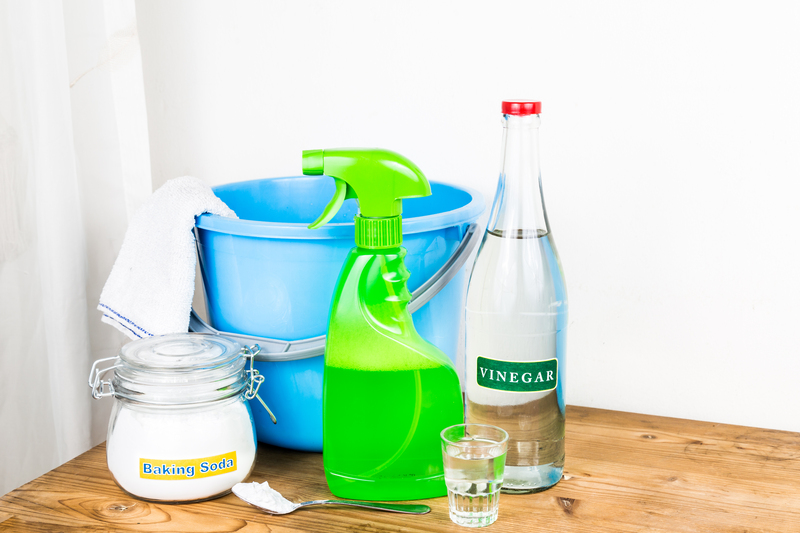The Importance of Regular Disinfection in Preventing the Spread of Infectious Diseases
Posted on 24/07/2024
In light of recent global events, the importance of regular disinfection has become more evident than ever. The spread of infectious diseases, such as COVID-19, has highlighted the crucial role that proper disinfection plays in preventing their transmission. While personal hygiene practices like hand-washing are essential for protecting ourselves and others from getting sick, they are not enough alone. Regular disinfection is a critical step in reducing the risk of contagious illnesses and maintaining a clean and healthy environment. In this article, we will delve into the significance of regular disinfection in preventing the spread of infectious diseases.
The Basics of Disinfection
Before diving into the importance of regular disinfection, it is essential to understand what it entails. Disinfection is the process of killing or removing harmful microorganisms, such as viruses and bacteria, from objects and surfaces. It involves using chemical agents or physical methods to eliminate these germs and prevent their spread. Some common methods include wiping down surfaces with a disinfectant solution, using UV lamps, and steam cleaning.

Preventing the Spread of Infectious Diseases
The primary goal of regular disinfection is to prevent the spread of infectious diseases. Harmful pathogens can survive on surfaces for hours or even days, making them easy targets for transmission. By regularly disinfecting commonly touched surfaces, we can destroy these microorganisms before they have a chance to infect others.
For instance, consider high-touch areas such as doorknobs, light switches, and countertops. These are all prime breeding grounds for germs to thrive and transfer from one person to another. With proper disinfection practices in place, we can minimize the risk of infection and maintain a safe living or working environment.
The Importance of Disinfecting Public Spaces
The need for regular disinfection becomes even more critical when it comes to public spaces like hospitals, schools, and offices. These places often have a high volume of people coming in and out, increasing the chances of spreading germs. Failure to regularly disinfect these areas can result in outbreaks of infectious diseases, posing a threat to both employees and visitors.
In healthcare settings, proper disinfection practices are crucial in preventing the spread of infections among patients and healthcare workers. Schools are also prone to outbreaks as children tend to touch surfaces frequently and may not always practice proper hygiene. Regular disinfection in schools can help reduce absenteeism and keep students healthy. Additionally, workplaces must prioritize regular disinfection to protect their employees' health and well-being.
The Pros and Cons of Regular Disinfection
Pros:
- Prevents the spread of infectious diseases
- Creates a clean and healthy environment
- Reduces the risk of outbreaks in public spaces
- Protects vulnerable individuals, such as children and the elderly
Cons:
- May lead to overuse of disinfectants, resulting in harmful chemical exposure
- Can be time-consuming and expensive for larger spaces
- Requires proper training to ensure effective use of disinfectants
Tips for Effective Disinfection
To reap the benefits of regular disinfection, it is essential to follow proper techniques that maximize its effectiveness. Here are some tips for ensuring effective disinfection:
1. Use EPA-approved disinfectants: Make sure to use products that are approved by the Environmental Protection Agency (EPA) for killing specific pathogens.
2. Follow instructions: Always follow the manufacturer's instructions when using a disinfectant. Pay attention to factors such as contact time, dilution ratio, and safety precautions.
3. Focus on high-touch areas: Prioritize disinfecting frequently touched surfaces such as doorknobs, keyboards, phones, etc.
4. Wear protective gear: When handling strong chemicals, wear gloves and other protective gear to avoid skin contact.
5. Wash your hands: Remember to wash your hands before and after using disinfectants to prevent any potential chemical exposure.

The Takeaways
Regular disinfection is crucial in preventing the spread of infectious diseases. It helps create a clean and healthy environment, reduces the risk of outbreaks, and protects vulnerable individuals. By following proper techniques and using EPA-approved products, we can effectively kill harmful pathogens and keep ourselves and others safe.
In Conclusion
The importance of regular disinfection cannot be overstated, especially in the current climate. By taking proactive measures to disinfect our homes, workplaces, and public spaces regularly, we can significantly reduce the risk of contagious illnesses and maintain a healthy environment for all. Remember to follow proper techniques, use approved products, and prioritize high-touch areas for optimal results. Let us do our part in preventing the spread of infectious diseases by making regular disinfection a top priority.




